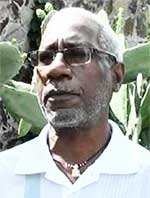
The 2019 CARICOM Heads of Government Summit will officially open here tomorrow and continue until Friday, under the Chairmanship of Prime Minister Allen Chastanet, who assumed the position from yesterday, for a six-month period.
The 40th Summit coincides with year-long observances for Saint Lucia’s 40 years of Independence and the Department of External Affairs has been spearheading preparations that will feature some of Saint Lucia’s culture, heritage and hospitality being highlighted during the three-day presence here of Heads of Government, other leaders and delegations from member-states, as well as distinguished special guests.
Heads will meet in Plenary and Caucus on Thursday and Friday (4 and 5 July) to deliberate on matters related to the implementation of the CARICOM Single Market and Economy (CSME) and Crime and Security in the Region.
But the leaders will also have much more on their plate here, not the least being the differing but common states of decline affecting most regional economies, increasing vulnerability of the region to Climate Change, implications of the UK’s pending BREXIT move for the Caribbean, Saint Vincent and the Grenadines’ Membership of the United Nations Security Council — and of course, the Venezuela situation.
Like in most regional organizations with governmental interests that compete more than complement, there are times when CARICOM governments will agree to decisions at the regional level and take forever to implement them at home.
Take the cases of the Caribbean Court of Justice (CCJ), CARICOM Single Market and Economy, Freedom of Movement, Reparations, Marijuana and Citizenship By Investment Programs, for example.
The CSME, while existing in reality, only functions to the extent that normal traditional business relations will allow the weaker businesses and economies to overcome the legal, commercial and other conventional barriers to free trade that automatically exist at regional and national levels.
Freedom of Movement is perhaps the biggest anomaly, as it simply does not exist across the region as intended, most territories – big and small – refusing to allow really the right of entry to be eventually, no longer be totally subject to national immigration laws.
Same with CARICOM’s 2013 call for Reparations from Britain and Europe for Slavery and Native Genocide, at a time when the Reparations issue has become a staple item in the campaigning for the 2020 US Presidential Elections.
The leaders are at different levels regarding their governmental roles in pursuing their European Union (EU) for dialogue and whether to fund the national committees established to assist them in pursuit of the long-agreed collective decision to seek long-overdue Reparations.
Same with the Legalization or Decriminalization of Marijuana, with some countries moving earnestly ahead to reap the best from the Caribbean’s new Green Gold in all the new areas now possible, while the majority prefer to adopt the usual wait-and-see attitude and watch the coffers of the extra-regional investors in the New Frontier get deeper as they welcome the lucrative new high from higher-than-expected rates of return on investments in medical marijuana.
Same with the Citizenship by Investment (CIP) Programs, where the leaders are admittedly racing each other to the bottom of the ladder in the absence of an agreed and/or coordinated regional strategy.
I can go on and on listing areas where CARICOM decisions take forever to be implemented at national levels as administrations with different minds simply don’t pass the necessary laws to make them effective, but this is not the objective here.
Instead, it’s to draw attention to the fact that while CARICOM Summits all end with important decisions for the future of the region and all its states, actual realization of the noble objectives can come to nothing if all CARICOM states don’t do what it takes to make unanimous decisions worth the time taken to discuss them or the paper they’re written on.
With Saint Lucia also being a member of the US-backed ‘Lima Group’ of states that firmly supports Washington’s interventionist approach to Caracas, Prime Minister Chastanet will also be required, over the next six months, to carefully tip-toe while traversing the line between the CARICOM and US positions on Venezuela.
The region is also discussing possibilities of forming a regional police or security force, at a time when Saint Lucia continues to face US sanctions under the Healy Act in relation to the IMPACS Report, under pressure too from the European Union for its implementation.
As the Prime Minister with responsibility for Climate Change and Environmental matters, Mr Chastanet will continue to lead the region’s charge in that regard, especially with calls for more adaptation to climate resilience.
Meanwhile, the three days during which the CARICOM leaders will meet here will include CARICOM’s Anniversary on July 4 — which is also Independence Day in the USA — while July 5 (Saturday) will mark Venezuela’s Independence Anniversary.
JUST IN CASE YOU DIDN’T KNOW! CARICOM has 15 Member States – Antigua and Barbuda, The Bahamas, Barbados, Belize, Dominica, Guyana, Grenada, Haiti, Jamaica, Montserrat, St Kitts and Nevis, Saint Lucia, St Vincent and the Grenadines, Suriname and Trinidad and Tobago, plus five Associate Members – Anguilla, Bermuda, British Virgin Islands, Cayman Islands and the Turks and Caicos Islands.
The independent member-states of the OECS are also all members of CARICOM, as well as the Association of Caribbean States (ACS).
The OECS and the ACS are headed by two Saint Lucians, Dr Didacus Jules and Dr June Soomer, respectively – and now; PM Chastanet is in the CARICOM Chair.






